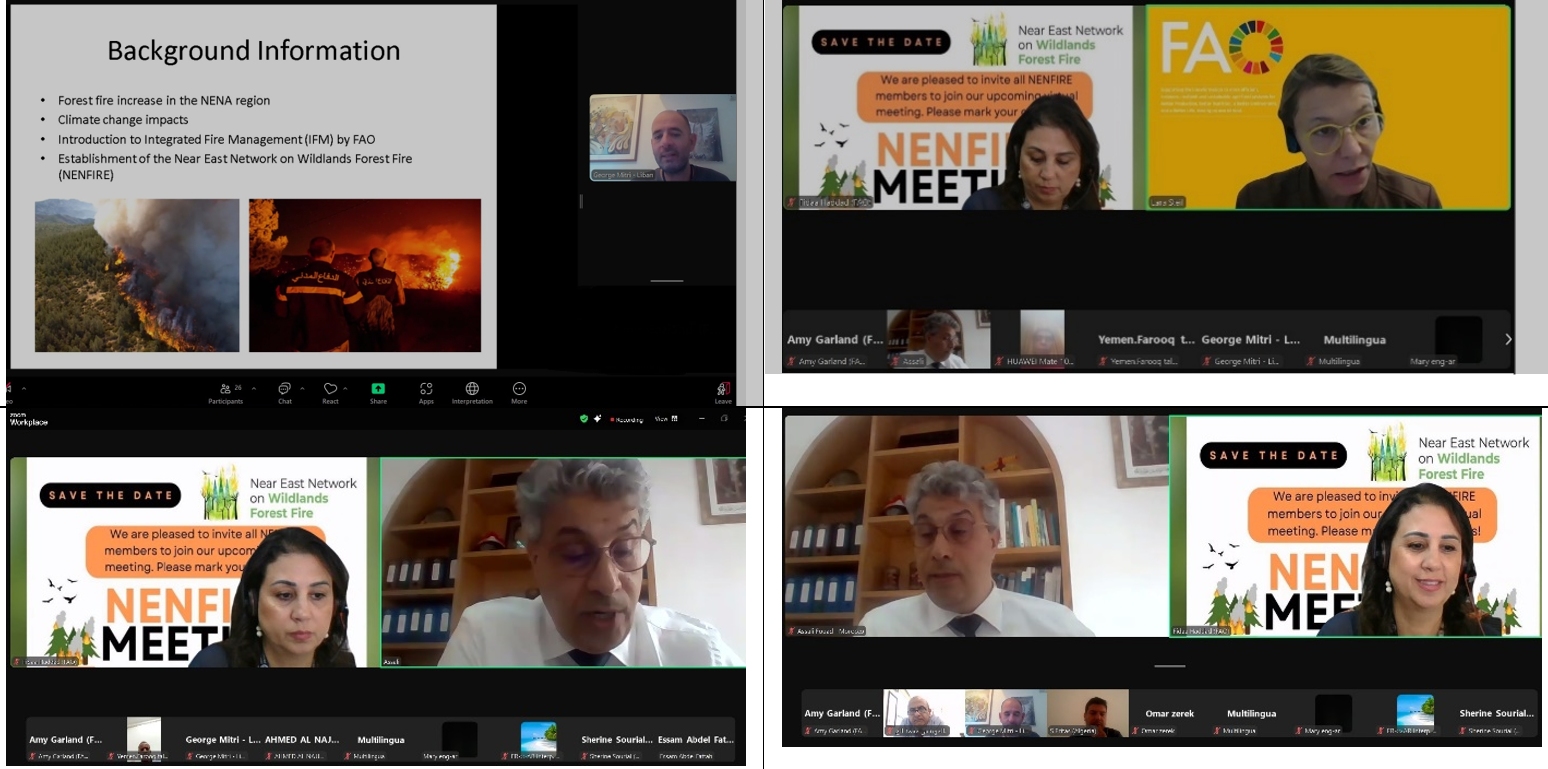NENFIRE meeting drives regional collaboration on wildfire prevention and response

©FAO
On 1 October 2024, the Near East Network on Wildlands Forest Fire (NENFIRE) convened its second virtual meeting of the year today, bringing together regional experts, government officials, and fire management professionals to validate the network’s five-year roadmap and set the course for enhanced wildfire management across the Near East and North Africa (NENA) region.
The NENA region is facing a steady rise in wildfires, exacerbated by climate change. In 2023, burned areas exceeded 100 000 hectares, significantly higher than the annual average of 92 000 hectares recorded between 2006 and 2023. These fires pose severe threats to the region’s fragile ecosystems, communities, and critical infrastructure. The growing frequency and intensity of wildfires call for urgent, coordinated action across the region. NENFIRE was established under the Near East Forestry and Range Commission (NEFRC) to address these urgent issues.
The meeting built on discussions from the first coordination meeting held in May 2024, which marked a crucial step toward addressing the escalating wildfire crisis in the region, providing a platform for regional stakeholders to exchange success stories and identify priorities for enhancing fire management capacities. The second meeting was chaired by NENFIRE chairperson Fouad Assali from the National Center for Forest Climate Risk Management High Commission of Waters, Forests and Combating Desertification, Morocco. Mr Assali highlighted the urgency of strengthening collaboration to prevent, respond to, and restore areas impacted by wildfires. He noted that the NENFIRE network plays a critical role in addressing the root causes of wildfires and promoting sustainable, integrated fire management (IFM) solutions.
Key speakers at the meeting included FAO representatives Fidaa Haddad, Senior Programme Officer at FAO, and Lara Steil, Forestry Officer (Fire) at FAO, who underscored the importance of an integrated approach to wildfire management. Ms Haddad highlighted the network’s primary goal of improving fire management while supporting restoration efforts. She also noted the importance of strengthening regional cooperation and sharing tools, expertise, and innovations across countries.
Ms Steil emphasized the need for preventive measures, citing FAO’s Global Fire Hub, launched in 2022, as a key platform to support countries in reducing wildfire impacts on livelihoods and ecosystems. She encouraged collaboration between NENFIRE and the Global Fire Hub to implement scalable fire management solutions.
George Mitri, Director of Land and Natural Resources Program at the Institute of the Environment, University of Balamand, Lebanon, presented findings from a recent stakeholder mapping exercise, discussing NENFIRE's coordination efforts, capacity-building strategies, and stakeholder engagement. He then introduced a NENFIRE survey designed to identify gaps, needs, and capacities within member countries. The responses will be critical for identifying priority capacity needs in the region, creating a presentation for the upcoming November meeting, and directly informing the development of the five-year roadmap for the network.
Participants from across the region actively engaged in discussions following the presentations, providing valuable insights into their needs and expectations. Looking ahead, NENFIRE’s next virtual meeting is scheduled for 21 November 2024, where the network will review feedback from the survey and finalize key pillars of its strategic plan. The network is also planning an in-person workshop and field visit in Morocco in February 2025 to facilitate deeper knowledge exchange and best practices in wildfire management.
